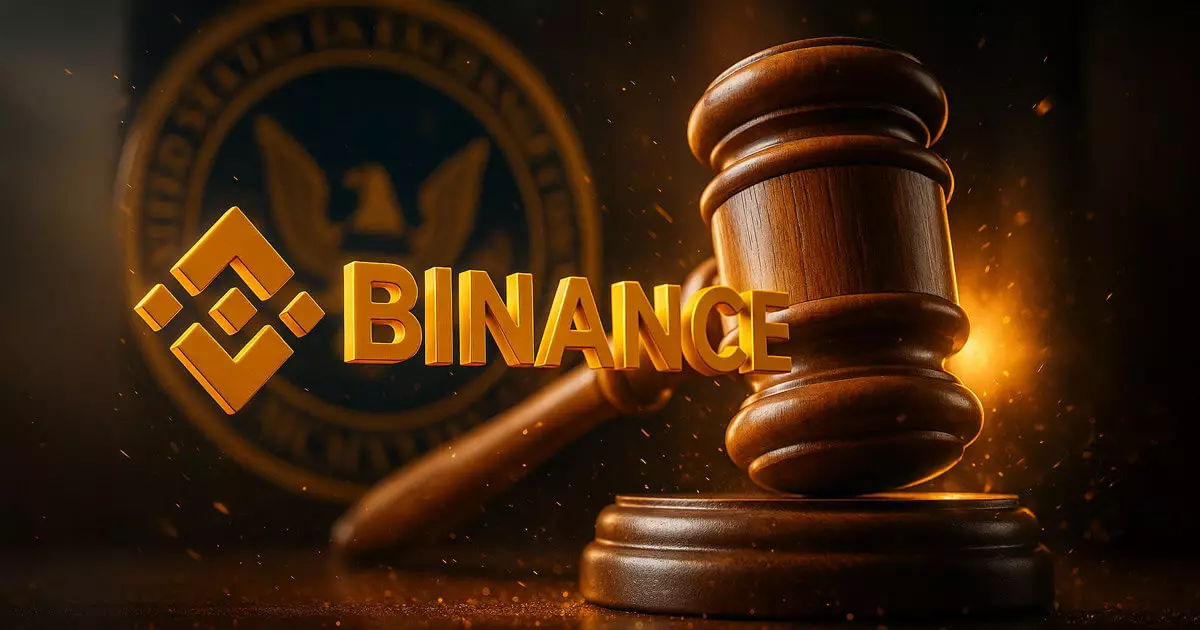In the ever-evolving landscape of digital finance, the legal wranglings surrounding Binance and its CEO, Changpeng Zhao, serve as a stark warning of the perils of regulatory overreach. The recent decision by the US Securities and Exchange Commission (SEC) to request the dismissal of its civil complaint against Binance is a multifaceted issue that encapsulates the ongoing struggle between innovation and regulation. The case, which had been paused for two months while a new SEC cryptocurrency task force deliberated on its implications, ultimately highlights an environment where innovation is often stifled by outdated regulatory frameworks.
As an advocate for center-right liberalism, I find it deeply troubling when regulatory bodies, in their pursuit of securing financial markets, act as gatekeepers that inhibit the growth of potentially transformative technologies. The SEC’s approach, often criticized as “regulation by enforcement,” became a double-edged sword that could undermine America’s status as a leader in tech innovation. The recent dismissal of the case — labeled a “huge win for crypto” by Binance — is indicative of the ongoing struggle to find the balance between necessary oversight and the protection of innovation.
Transparency Amidst Shadows: Binance’s Compliance Journey
Despite the legal victory, it is worth noting that the SEC’s decision does not exonerate Binance entirely. The company remains under the auspices of a consent decree that mandates rigorous compliance measures and oversight. This situation serves as a testament to the fact that while heated battles are fought in the courtrooms, the foundational principles of transparency and accountability remain vital. As Binance continues to navigate its commitments, the scrutiny it faces should be seen not just as punitive, but rather as a necessary check that protects consumers and fosters a healthier digital marketplace.
However, one must question the efficacy of such regulations. The idea of compliance through constant oversight tends to complicate rather than simplify operational frameworks, often leading to greater bureaucratic inefficiencies. Center-right liberals like myself often argue for a lighter regulatory touch, one that encourages businesses like Binance to operate with the freedom to innovate while still maintaining a strong ethical backbone.
The Real Cost: Public Trust and Investor Confidence
One of the more unsettling consequences of the SEC’s aggressive stance against Binance was the impact on public trust and investor confidence. The initial complaint raised serious allegations of misconduct, including inflated trading volumes and misuse of customer assets. Such allegations resonate deeply in the collective consciousness of investors who have already faced significant risks in the volatile world of cryptocurrency.
While Binance vehemently denied any wrongdoing, the SEC’s pursuit of injunctive relief and civil penalties rattled the very foundation of consumer confidence within the sector. Public perception is often frail; one instance of alleged misconduct can unfairly tarnish an entire ecosystem’s reputation. As we move forward, we must remain vigilant about the ramifications of regulatory actions not only on individuals and companies but on the entire financial ecosystem.
Criminal Investigations: A Chilling Effect
The specter of criminal investigations by the Department of Justice cast an even longer shadow over Binance’s operations. With Zhao’s guilty plea to Bank Secrecy Act violations and the accompanying $4.3 billion settlement, the implications extend far beyond the courtroom. The deterrent effect of legal challenges can cause a chilling effect, causing potential innovators and entrepreneurs to shy away from venturing into a landscape fraught with regulatory landmines.
It raises a broader philosophical question: Are we inadvertently deterring the next generation of innovative thinkers from disrupting stale markets? While accountability is paramount, the potential adverse effects on entrepreneurship must also be weighed carefully. The current landscape begs for new regulatory solutions that encourage participation rather than fear of litigation.
A Future Beyond Litigation: Finding a Balance
Looking ahead, the industry must come together — private sector actors, regulatory bodies, and policymakers alike — to create a balanced framework that nurtures innovation while ensuring the highest levels of accountability and consumer protection. The dismissal of the SEC case against Binance should be a signal for more than just legal closure; it should ignite discussions about how we can reshape regulatory paradigms to meld with the realities of digital finance.
It is essential for voices advocating center-right positions to push for a regulatory environment that fosters innovation rather than stifles it under the weight of bureaucratic scrutiny. By marrying the principles of transparency with the need for flexibility, we can build a robust framework that not only protects consumers but also encourages a flourishing marketplace for groundbreaking digital technologies.

